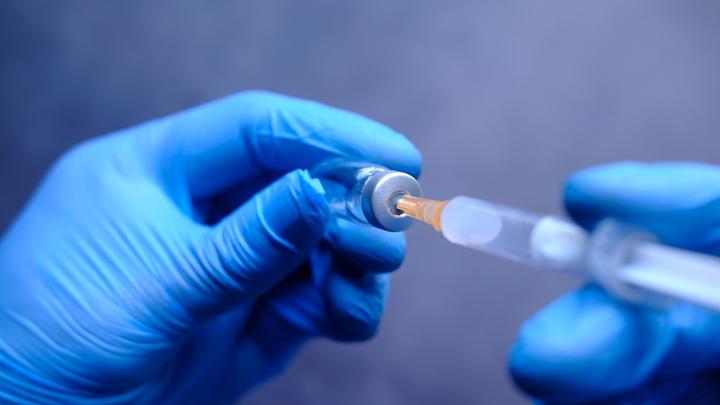A Princeton-led technology to improve the storage and transport of vaccines and life-saving drugs at room temperature has been selected as one of three university innovations to receive funding for further development from the Philadelphia-based University City Science Center.
The innovation, a system for rapid room-temperature dehydration of vaccines and biopharmaceuticals, uses ultra-fine-droplet aerosols to convert vaccines and drugs into dry form, eliminating the need for expensive refrigeration or freezing. The technology was developed by Princeton Research Scholar Maksim Mezhericher in collaboration with Howard Stone, Princeton’s Donald R. Dixon '69 and Elizabeth W. Dixon Professor of Mechanical and Aerospace Engineering.
The Princeton team was selected from among the 12 participants in the Science Center’s QED Proof-of-Concept program to receive a $200,000 grant with which to advance the technologies. The Science Center will contribute half the funds, with the remainder contributed by the researchers’ institutions.
Awardees also receive access to an experienced team of business advisers, exposure to investors and industry representatives, and access to regulatory and legal specialists to advance their technologies toward the next stage of development.
The QED program connects university researchers with investors and industry experts who advise on how to transform life-sciences discoveries into products and services that benefit human health.

As a QED program participant, the Princeton team met regularly for the past several months with business advisers and professionals to enable the team to develop a business plan and outline steps to bring the innovation to customers.
At the conclusion of the program, a committee of investors and industry reviewed each project’s technical proposal, business plan and presentation, and selected the Princeton team and two other university teams for the funding award. Projects were judged in part on the potential to demonstrate a significant improvement over existing available technologies.
“This award exemplifies our shared goal with the Science Center of transforming academic research into impactful solutions,” said John Ritter, director of Technology Licensing at Princeton.
The Princeton team’s technology has the potential to lower the cost and improve the reliability of vaccines and biological medications, including several cancer therapies, that are temperature-sensitive because they contain components derived from living organisms. During transportation and distribution, such therapeutics must be transferred from one refrigerator or freezer to the next, maintaining a “cold chain.”
Solutions to the cold-chain challenge could make vaccines and therapies more widely available to patients. In 2019, 45% of new drug approvals by the FDA were on temperature-sensitive products. In 2020, the total global revenue of cold-chain pharmaceutical products was greater than $340 billion.
The process could also lead to reduced maintenance costs and space requirements associated with expensive freezer equipment, and lessen the need to train employees to work with temperature-sensitive therapies.
The dehydration technology involves applying a patented atomization technique to create submicron droplets that are 10 to 1,000 times smaller than those generated by commercial nozzles and nebulizers. Compared to existing approaches, the Princeton team’s technology is simpler, faster, more scalable and lower in cost, involving much smaller energy consumption and less environmental impact.
Early progress on the development of the technology received support from the New Jersey Health Foundation and the New Jersey Alliance for Clinical and Translational Science.
“We’re tremendously excited to continue developing our innovative technology, which we believe has the potential to greatly improve the ability of vital medicines and vaccines to reach people who need them,” Mezhericher said, “especially in remote areas where it is difficult to maintain cold temperatures.”
The QED program, from the Latin quod erat demonstrandum, or, “that which is demonstrated,” provides expert advice on business, patent and regulatory issues as well as access to the Science Center’s network of investors and partners. The program aims to develop early-stage life science technologies from universities that have joined the Science Center, an organization that helps discoveries become viable business ventures by working with academic institutions in New Jersey, Pennsylvania and Delaware. Princeton became a Science Center university partner in 2020.
For more information about this technology, contact Dr. Maksim Mezhericher,Department of Mechanical and Aerospace Engineering, Princeton University, maksymm@princeton.edu




